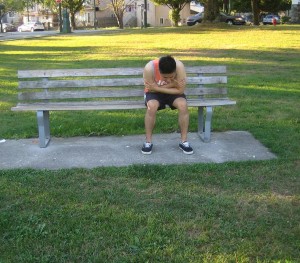It is a known fact that dizziness can occur at any age and most have experienced it at some point in their lives. The condition can cause a change in the sense of balance as well as cause disorientation in space thus affecting the daily tasks of the individual. The symptoms of dizziness include spinning, loss of balance, nausea, unsteadiness and feeling of faintness. It is important to note that dizziness can occur once the equilibrium of the body or state of balance is disrupted. The common causes of various forms of dizziness usually include allergies, diet, disease and infection.
Lightheadedness
Take note that lightheadedness is a type of dizziness that causes feelings of faintness or unsteadiness. This can be caused by alcohol, illnesses, tobacco, dehydration, allergies or standing too quickly. This type of dizziness can occur once there is insufficient blood being distributed to the brain or an abrupt drop in the blood pressure. Always remember that lightheadedness usually affects the elderly and can quickly vanish. In case the problem persists, it can indicate a serious medical issue such as diabetes or anemia.

Presyncope
Presyncope is a type of dizziness that triggers a disturbance in the balance as well as loss of consciousness. This condition typically occurs before a syncopal episode which is full temporary loss of consciousness. The condition can be due to changes in the blood volume in the brain or an erratic cardiac rate. If there is a drop in the blood pressure, it causes presyncope if the individual stands up quickly or can be due to a serious health condition. The symptoms of presyncope usually include loss of balance, feeling faint, confusion, muscular weakness and blurry vision.
Vertigo
Vertigo refers to the disturbance in the balance of the individual or a sensation of spinning. The sensations tend to occur any time of the day and can last for hours or even years. The symptoms of vertigo can be debilitating and typically includes blurry vision, spinning, lack of balance, nausea and disrupted coordination. Take note that the condition is linked with issues in the interior ear or with the central nervous system. Based on studies conducted, the ear is accountable for more than half of the cases that involves dizziness and when the vertigo lasts for several hours, it tends to occur with inner ear disorders. If you want to learn how to handle vertigo, click here.
Most of the balancing mechanisms of the body are found in the inner ear which includes the auditory nerves and vestibule. Any irritation or infection that can occur on these mechanisms can trigger an onset of vertigo. Other possible causes of vertigo include overusing certain medications, injury, diminished flow of blood in the body and even migraine.
